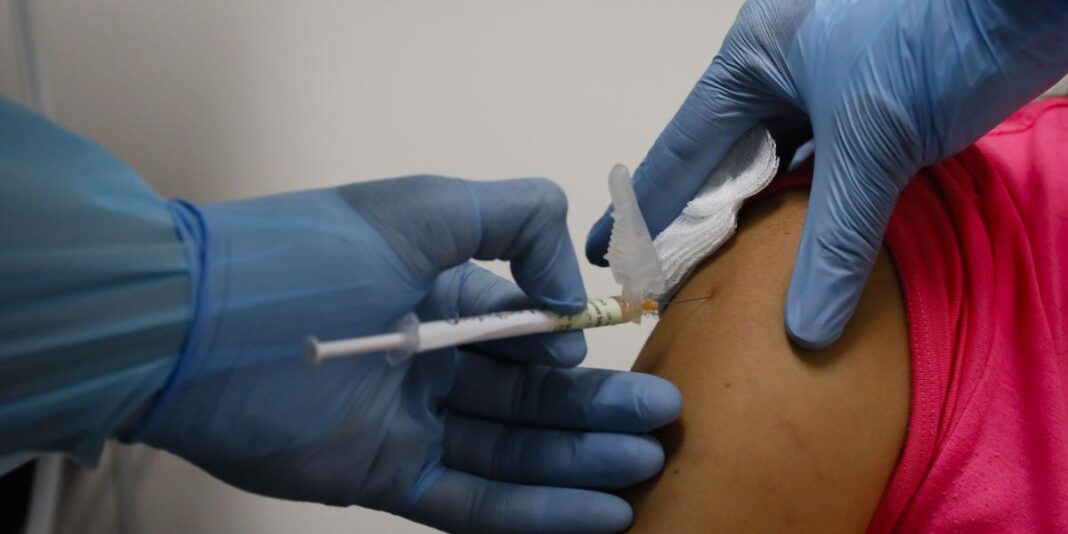BTN News: Dengue fever is on the rise in Latin America and the Caribbean, with over 9.3 million cases reported in 2024 — double the number recorded throughout 2023. According to the Pan American Health Organization (PAHO), the spike in dengue cases has affected all countries in the region, signaling a growing health crisis fueled by climate change and the expansion of the Aedes aegypti mosquito, the primary vector of this viral infection. Amidst this alarming trend, a new dengue vaccine, “Qdenga,” offers a glimmer of hope, particularly in countries like Colombia, which have been heavily impacted by the outbreak. However, challenges remain in controlling the spread of the virus and ensuring vaccine accessibility.
Why is Dengue on the Rise? Climate Change and Mosquito Expansion
The increasing risk of dengue is closely linked to the expanding habitat of the Aedes aegypti mosquito, driven by global warming and climate phenomena like El Niño. Diana Rojas, an expert in arboviruses at the World Health Organization (WHO), warns that climate change is creating new breeding grounds for mosquitoes, placing nearly half of the world’s population — approximately 4 billion people — at risk of contracting dengue.
The spread of the mosquito into new regions has exacerbated the problem, particularly in tropical and subtropical areas where warmer temperatures, increased rainfall, and humidity create ideal conditions for mosquito proliferation. This change has led to more frequent and severe outbreaks, affecting more communities than ever before.
Colombia Faces Sharp Increase in Dengue Cases in 2024
Colombia is among the countries hit hardest by the dengue surge. As of June 30, 2024, over 209,211 cases have been reported nationwide, nearly doubling the 119,353 cases documented in the previous year. According to Colombia’s National Institute of Health (INS), the majority of cases — 76.4% — are concentrated in the departments of Valle del Cauca, Cali, Santander, Tolima, Huila, Cundinamarca, Antioquia, Cauca, and Norte de Santander.
Carlos Torres, a pediatric infectious disease specialist and member of the Colombian Society of Pediatrics, emphasizes the urgent need for enhanced preventive measures, including early diagnosis, public education, and effective vector control. “More than 88% of municipalities are now affected by dengue, particularly those below 2,300 meters in elevation,” Torres states. “This scenario calls for a comprehensive approach, combining traditional strategies with innovative solutions like vaccination.”
A New Tool in the Fight: Introducing the Qdenga Vaccine
Recently, Colombia introduced a new line of defense against dengue: the Qdenga vaccine. Developed by pharmaceutical company Takeda, Qdenga is a live-attenuated vaccine that has demonstrated a 91% efficacy in preventing severe dengue and hospitalizations and a 65% to 80% efficacy in preventing conventional dengue. The vaccine is now available in the Colombian market at an average cost of 350,000 pesos, although it has not yet been included in the government’s Expanded Program on Immunization (EPI).
The Qdenga vaccine is designed to protect against all four serotypes of the dengue virus and can be administered to individuals aged 4 to 60. Its introduction in Colombia marks a significant step forward in reducing the disease burden, especially in high-risk areas. “The vaccine is a critical tool in our fight against dengue, especially as cases continue to rise,” Torres adds. “We need to vaccinate not just those living in endemic regions, but also travelers who frequently visit these areas.”
Effectiveness Backed by Research: A Global Perspective
The Qdenga vaccine’s effectiveness has been substantiated through extensive trials across multiple regions. Studies conducted in five Latin American countries — Brazil, Colombia, the Dominican Republic, Nicaragua, and Panama — and three Asian countries — Sri Lanka, Thailand, and the Philippines — have confirmed the vaccine’s strong protective capabilities. In Brazil alone, over 80 million doses have already been administered with promising results, providing a robust endorsement of the vaccine’s efficacy and safety.
Prevention is Key: Combining Strategies to Combat Dengue
Despite the promise of the new vaccine, experts stress that vaccination alone is not enough to curb the escalating number of dengue cases. A multi-faceted approach remains essential, combining community education, early detection, and effective vector control methods such as insecticide spraying and the use of mosquito nets.
Ana Cristina Ochoa, Medical Director at Takeda, highlights the devastating impact of dengue: “It is shocking and heartbreaking that in this modern era, families still experience the loss of loved ones due to a mosquito bite. Prevention and early intervention are critical to mitigate these severe outcomes.”
Looking Ahead: The Path to a Dengue-Free Future
As dengue cases continue to climb across Latin America and the Caribbean, the introduction of the Qdenga vaccine offers a new avenue for controlling the disease. However, a coordinated effort is required to address the broader environmental factors contributing to the spread of dengue and to make the vaccine accessible to all at risk. Moving forward, global and local health authorities must prioritize both immediate and long-term strategies to protect vulnerable populations from this growing threat.
Conclusion: A Call to Action in the Face of a Growing Health Crisis
The surge in dengue cases in Latin America in 2024, particularly in countries like Colombia, underscores the urgent need for comprehensive strategies to combat this viral threat. While the new Qdenga vaccine brings hope, addressing the root causes of dengue spread — such as climate change and mosquito expansion — remains crucial. Health officials and communities must work together to ensure early diagnosis, effective prevention, and widespread vaccination, paving the way toward a safer, dengue-free future.


